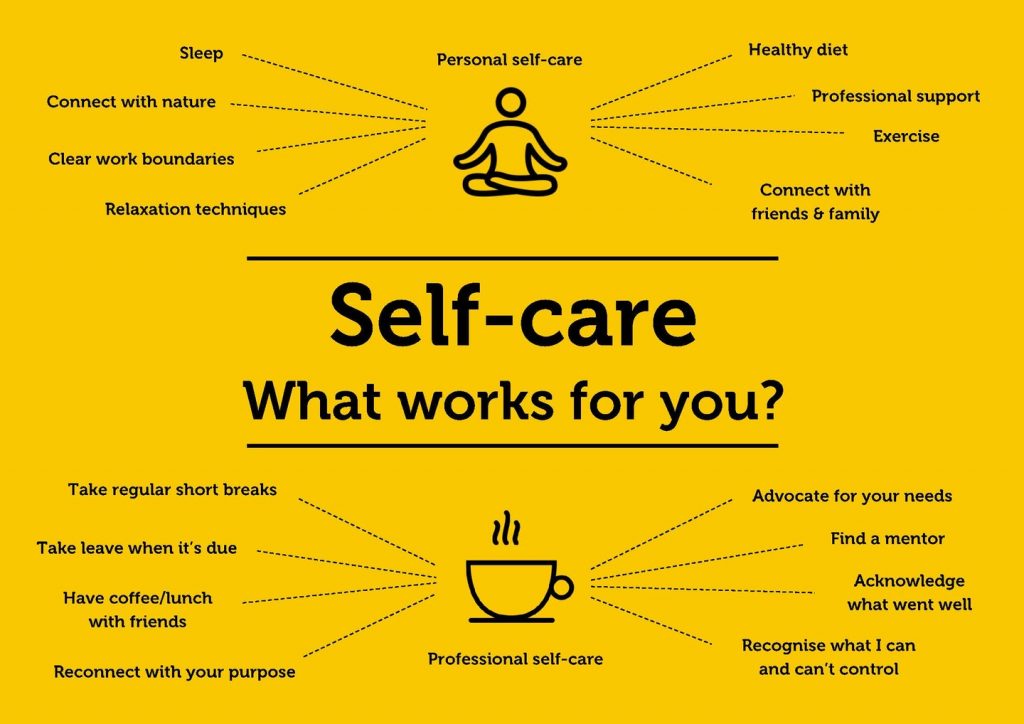Boost Your Mental Wellbeing: Simple Steps to a Happier You
Did you know that feeling good isn't just about being happy all the time? It’s a dynamic process, where sometimes, even feeling sad or angry can contribute to your overall emotional wellbeing. It's all about how you manage those feelings, not whether you have them. Now, let's explore the fascinating world of mental wellbeing in depth.
Understanding Mental Wellbeing
Mental health awareness has thankfully increased in recent years, but what exactly constitutes mental wellbeing? It's more than simply the absence of mental illness. It encompasses a state of emotional, psychological, and social wellness, allowing individuals to cope with the normal stresses of life, work productively, and contribute to their communities. It’s about thriving, not just surviving. A key aspect is understanding that emotional regulation is a skill that can be learned and improved over time. Poor mental wellbeing, on the other hand, can manifest in various ways, including difficulty concentrating, persistent fatigue, social withdrawal, and increased irritability. It is crucial to recognize these signs early and take proactive steps to address them.
It's important to understand that mental wellbeing is a spectrum. We all fluctuate along this spectrum, experiencing periods of greater or lesser wellbeing depending on life circumstances. The goal isn't to reach some unattainable state of constant bliss, but rather to cultivate resilience building and develop coping mechanisms that allow us to navigate challenges effectively and maintain a sense of balance and purpose.
According to the World Health Organization, mental health is "a state of well-being in which an individual realizes his or her own abilities, can cope with the normal stresses of life, can work productively and fruitfully, and is able to make a contribution to his or her community." This definition underscores the multifaceted nature of mental wellbeing and highlights its importance in all aspects of life.
The Different Dimensions of Mental Wellbeing
The Mind-Body Connection
The connection between our minds and bodies is undeniable. Physical activity, for instance, releases endorphins, which have mood-boosting effects. Conversely, chronic stress can weaken the immune system and increase the risk of physical illness. Prioritizing physical health, through regular exercise, a balanced diet, and sufficient sleep, is therefore an essential component of maintaining mental wellbeing.
Social Connection and Support
Humans are social creatures, and strong social connections are vital for our mental and emotional health. Isolation and loneliness can have a devastating impact on mental wellbeing, increasing the risk of depression and anxiety. Cultivating meaningful relationships, building a supportive network, and engaging in social activities are crucial for promoting a sense of belonging and connection.
Strategies for Improving Mental Wellbeing
Fortunately, there are many effective strategies for enhancing and maintaining mental wellbeing. These strategies range from lifestyle changes to therapeutic interventions, and the best approach often involves a combination of different techniques. The key is to find what works best for you and incorporate these practices into your daily routine. Remember that building resilience building is a continuous process, not a one-time fix.
Self-Care Practices
Self-care practices are activities that we intentionally engage in to take care of our physical, emotional, and mental health. These practices can be as simple as taking a relaxing bath, reading a book, spending time in nature, or practicing mindfulness meditation. The important thing is to choose activities that you find enjoyable and that help you to recharge and de-stress. It is imperative to actively schedule time for self-care into your daily and weekly routine, just as you would any other important appointment. Without dedicated self-care time, you risk burnout.
Stress Management Techniques
Stress management is a critical component of maintaining mental wellbeing. Chronic stress can have a detrimental impact on both physical and mental health, contributing to anxiety, depression, and other health problems. Effective stress management techniques include deep breathing exercises, progressive muscle relaxation, yoga, and spending time in nature. Identifying your personal stressors and developing strategies for coping with them is essential for reducing the impact of stress on your life. It also helps to identify what is within your locus of control and focusing your energy there.
Mindfulness and Meditation
Mindfulness meditation involves paying attention to the present moment without judgment. It can help to reduce stress, improve focus, and increase self-awareness. There are many different types of mindfulness meditation, including breath awareness meditation, body scan meditation, and loving-kindness meditation. Even just a few minutes of daily meditation can have a significant impact on mental wellbeing.
The Power of Positive Psychology
Positive psychology focuses on understanding and promoting the factors that contribute to human flourishing. It emphasizes strengths-based approaches, focusing on what is right with people rather than what is wrong. By cultivating positive emotions, engaging in meaningful activities, building strong relationships, and pursuing a sense of purpose, we can enhance our mental wellbeing and live more fulfilling lives.
| Positive Psychology Element | Description | Example Practice |
|---|---|---|
| Gratitude | Appreciating the good things in your life. | Keeping a gratitude journal, expressing thanks to others. |
| Optimism | Having a positive outlook on the future. | Reframing negative thoughts, setting achievable goals. |
| Resilience | Bouncing back from adversity. | Developing coping mechanisms, seeking support when needed. |
| Kindness | Performing acts of kindness for others. | Volunteering, helping a neighbor, offering support. |
Addressing Anxiety Relief
Anxiety relief is often a primary concern for individuals seeking to improve their mental wellbeing. While some level of anxiety is a normal part of life, excessive anxiety can be debilitating. It's essential to recognize the signs and symptoms of anxiety and to develop effective strategies for managing it. Remember to consult with a qualified healthcare professional if you struggle with chronic or severe anxiety.
Here are several strategies that have been shown to offer effective anxiety relief:
- Deep Breathing Exercises: Slow, deep breathing can activate the parasympathetic nervous system, promoting relaxation and reducing anxiety.
- Progressive Muscle Relaxation: This technique involves tensing and releasing different muscle groups in the body to relieve physical tension and promote relaxation.
- Cognitive Behavioral Therapy (CBT): CBT is a type of therapy that helps individuals identify and change negative thought patterns that contribute to anxiety.
- Mindfulness Meditation: Practicing mindfulness can help individuals become more aware of their thoughts and feelings without judgment, reducing anxiety and improving emotional regulation.
Statistics show that Cognitive Behavioral Therapy (CBT) has a success rate of up to 75% in treating anxiety disorders, emphasizing the potential benefits of seeking professional help when needed.
| Anxiety Relief Technique | Description | Benefits |
|---|---|---|
| Deep Breathing | Slow, controlled breathing exercises. | Reduces heart rate, lowers blood pressure, promotes relaxation. |
| Progressive Muscle Relaxation | Tensing and releasing muscle groups. | Relieves physical tension, promotes relaxation. |
| Mindfulness Meditation | Focusing on the present moment. | Reduces stress, improves focus, increases self-awareness. |
Seeking Professional Support
If you are struggling with significant mental health challenges, it's essential to seek professional support. A qualified therapist or counselor can provide guidance, support, and evidence-based treatments to help you improve your mental wellbeing. Don't hesitate to reach out for help if you need it. Remember, seeking help is a sign of strength, not weakness.
Building a Support System
A strong support system can make a significant difference in your ability to cope with stress and maintain mental wellbeing. Connect with friends, family, or support groups to build a network of people who care about you and can offer encouragement and understanding. Sharing your experiences with others can help you feel less alone and more supported.
FAQ About Mental Wellbeing
Here are some frequently asked questions about mental wellbeing:
- What is the difference between mental health and mental wellbeing?
Mental health refers to a person's condition with regard to their psychological and emotional wellbeing. Mental wellbeing, on the other hand, encompasses a broader state of emotional, psychological, and social wellness, enabling individuals to cope with life's stresses and contribute to their communities.
- How can I improve my mental wellbeing?
There are many strategies you can use, including practicing self-care practices, managing stress, practicing mindfulness meditation, cultivating positive emotions, and building strong relationships.
- When should I seek professional help for my mental health?
If you are experiencing persistent symptoms of anxiety, depression, or other mental health challenges that are interfering with your daily life, it's important to seek professional help. A therapist or counselor can provide guidance and support.
- What are some common signs of poor mental wellbeing?
Common signs include difficulty concentrating, persistent fatigue, social withdrawal, increased irritability, changes in sleep or appetite, and feelings of hopelessness or worthlessness.
- Can exercise improve mental wellbeing?
Yes, regular exercise has been shown to have a positive impact on mental wellbeing by releasing endorphins, reducing stress, and improving mood.
Prioritizing your mental wellbeing is an ongoing journey that requires consistent effort and self-compassion. By implementing the strategies discussed in this guide and seeking support when needed, you can cultivate a more balanced, fulfilling, and resilient life. What are your favorite ways to nurture your mental health? Share your tips and experiences in the comments below!


